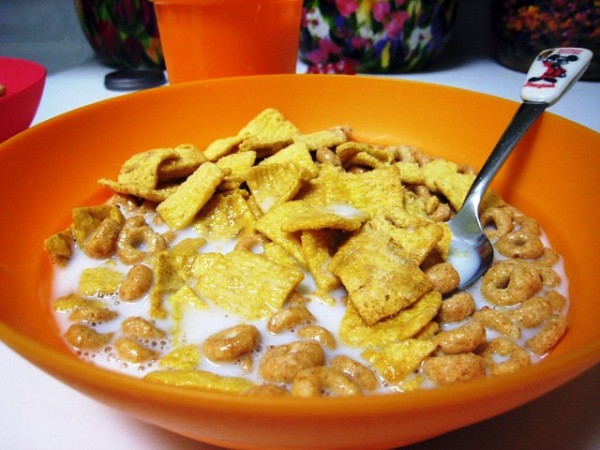Fortified Breakfast Cereals and Energy Bars Contain Too Much Nutrients: EWG

Extra nutrients added in fortified food like cereals and energy bars can be dangerous to children's health, warn health experts.
Recently the Environmental Working Group issued a report stating that commercially sold breakfast cereals and food products contain excessive amounts of vitamins and minerals that can be harmful to children, elderly people and pregnant women. These products are advertised as 'natural and healthy' to boost sales volume and revenue by their manufacturers. But, the agency believes their business tactic can cause vitamin overdose and side-effects in children.
According to the reports, over half of the American children get too much vitamin A, zinc and niacin from fortified breakfasts. These nutritive ingredients are added in amounts that are ideal to be consumed by adults but not children who are aged below eight. Frequent intake of snacks with added nutrients causes liver damages, skeletal abnormalities, skin peeling, brittle nails and loss of hair. The EWG identified a total of 114 cereals and 1,000 snack bars with more than 30 and 50 percent of nutrients needed for daily consumption, respectively.
Seniors who reported ingesting too much of vitamin A rich foods suffered from hip fractures and in pregnant women its intake was related to fetal abnormalities. Huge levels of zinc in the body reduce copper absorption and immunity by damaging red and white blood cells. Niacin causes skin rashes, vomiting and nausea.
The U.S. Food and Drug Administration's (FDA) recommendations on nutritional content in products are outdated. Many fortified products do not adhere to the maximum safety levels on nutrients suggested by the National Academy of Sciences' Institute of Medicine. The FDA is currently reconsidering daily values for infants and toddlers but not for those aged between four and eight, They mostly consume food meant for adults.
"Only a tiny, tiny percentage of cereal packages carry nutrition labels that list age-specific daily values. That's misleading to parents and is contributing to the problem," said Renée Sharp, EWG's director of research, reports the USA Today.
The EWG is urging the FDA to revise labeling system and ask manufacturers to mention the daily requirement of nutrients in the products.
Jun 26, 2014 08:41 AM EDT




